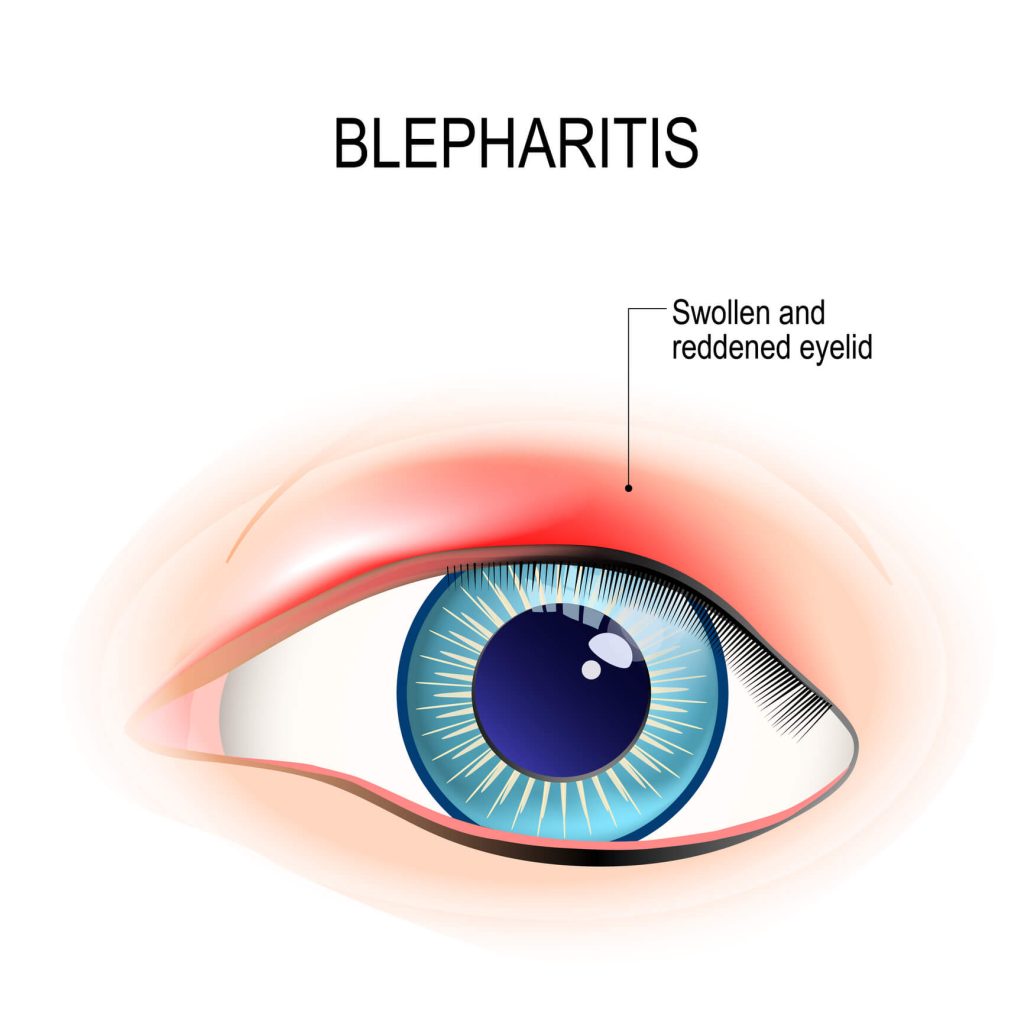Blepharitis is an inflammation of the eyelids that causes redness, swelling and crusty eyelashes. It is a very common condition, especially among people who have oily skin, dandruff or rosacea. Blepharitis is not contagious.

Blepharitis is often caused by an overgrowth of bacteria that live along the base of the upper and lower eyelashes. There are other causes of blepharitis as well:
Symptoms of Blepharitis
Blepharitis rarely effects your eyesight, but you may experience discomfort because of the symptoms. Some of the common symptoms of blepharitis include:
An inflamed, crusty eyelid is the tell-tale sign of blepharitis. Your doctor will perform a more detailed examination using a slit lamp microscope to help determine the cause. Based on your symptoms and your doctor’s examination, a treatment plan will be devised.
At Home Procedures
In Office Procedures
Treatments for blepharitis are aimed at easing and controlling the symptoms as there is no cure.
Daily eye hygiene and a care plan devised with your doctor is the best strategy for managing blepharitis. Schedule an appointment today with Dr. Julie McLaughlin, the #1 choice for treating blepharitis in Allentown, Bethlehem, Easton, and the surrounding areas.
Call Now Meet Dr. McLaughlin